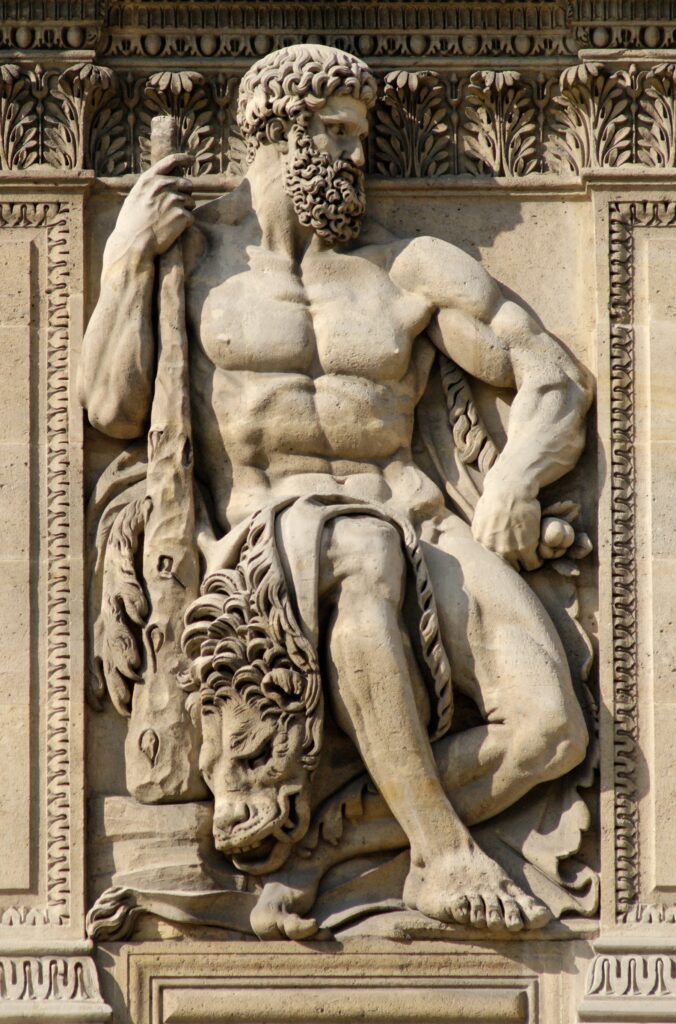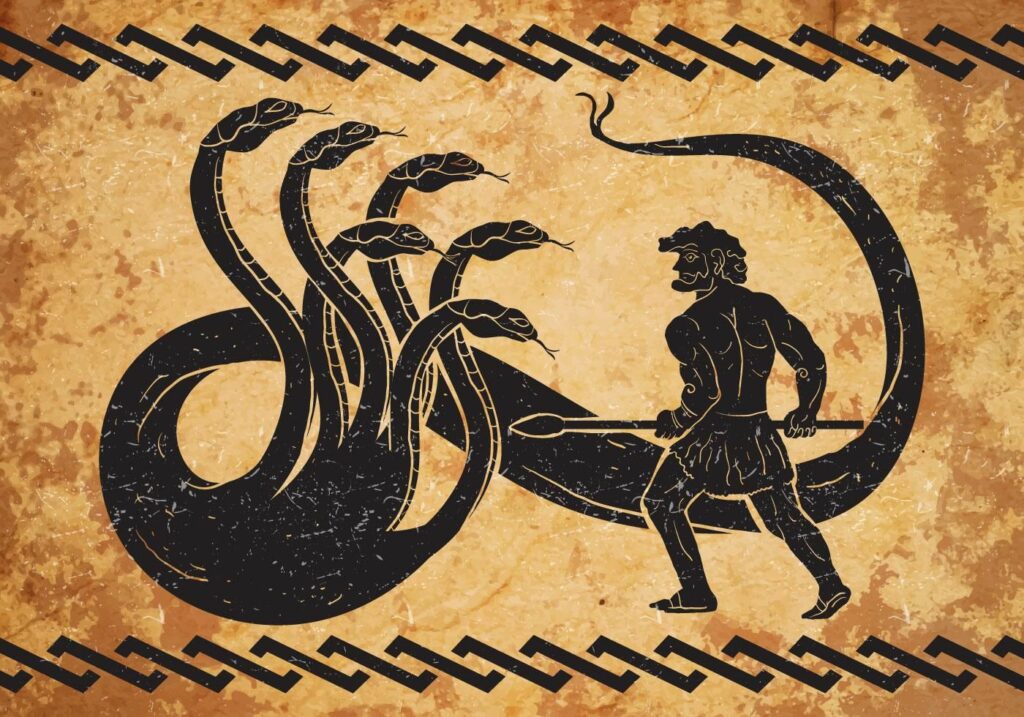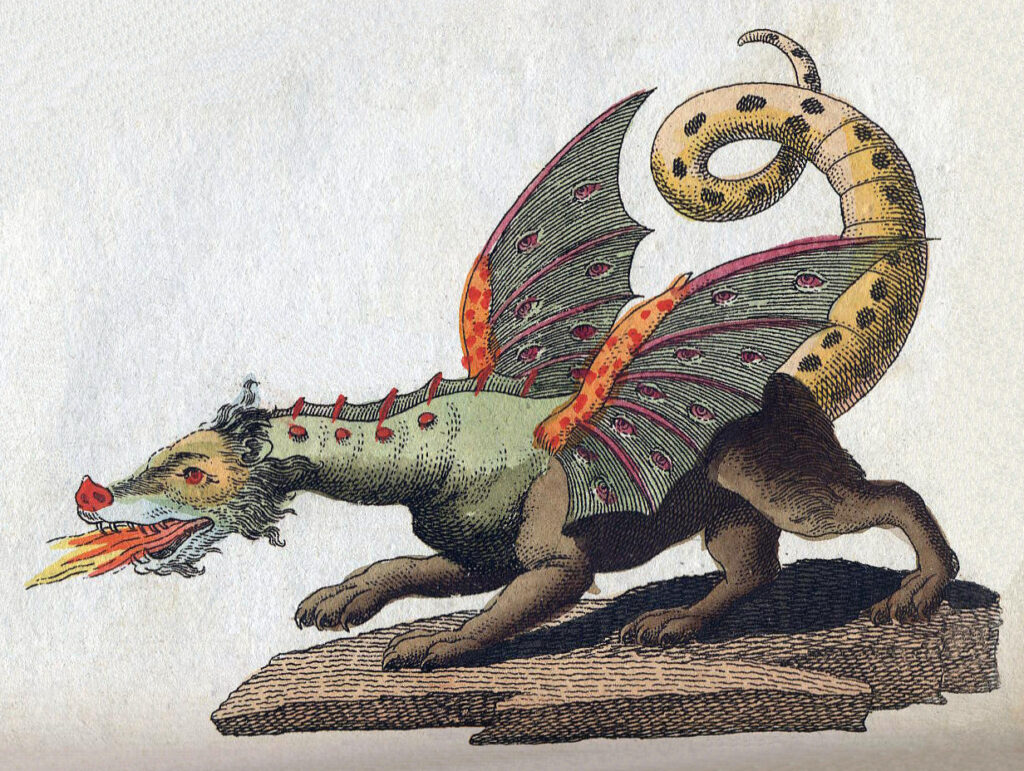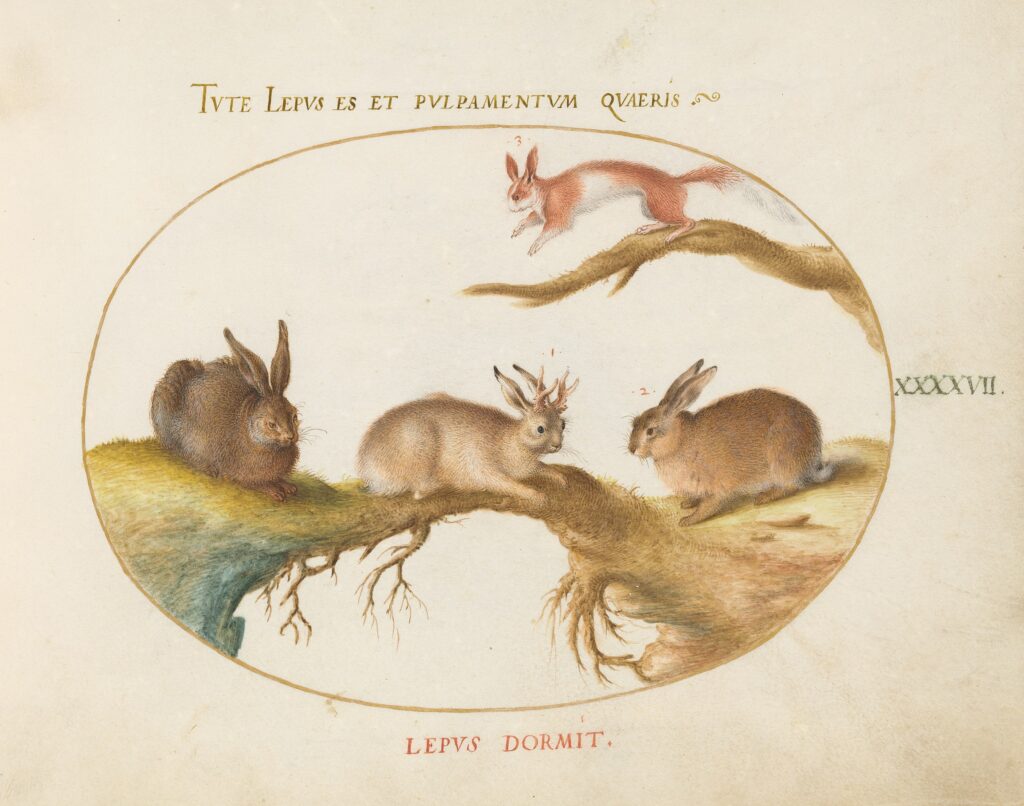One of the most famous heroes in the Western canon is Heracles, or Roman Hercules. He was a demigod who performed spectacular feats during his lifetime.
His tale has been adapted many times by authors and poets through the ages, including in recent years an animated movie produced by Disney, a television series starring Kevin Sorbo, and a playable character in the multiplayer online battle arena game Smite.
But what drove Heracles to perform these tasks?

Betrayed Before Birth
Heracles was the son of a human woman named Alemene. She was the granddaughter of the hero Perseus who had slain the gorgon Medusa. His father was the king of the gods, Zeus.
Zeus was infamous for having extramarital affairs and sired dozens of children with people besides his wife Hera. She was famously very angry with Zeus’ infidelity and took vengeance upon his children as a result. Heracles suffered at her hands throughout his life.
The earliest vengeance wrought on an unborn Heracles was Hera offering a proposal to Zeus. She proposed that whoever the next child of Perseus’ bloodline born was, would become high king. Zeus barely hesitated to agree, knowing that Heracles would be his next son.
However, Hera was already plotting her vengeance. She delayed Heracles’ birth to ensure another of Zeus’ children became the high king.
In another early attempt to assert her vengeance, she dispatched two snakes to kill the child. Rather than being afraid, though, Heracles instantly strangled the snakes, overcoming the first of many challenges he would face in his life.
A Life Destined for Glory
His great strength and quick temper came early in life. This caused him to accidentally kill his music teacher as a kid.
His father then sent him to the mountains to tend cattle. This is where he was approached by the goddesses Virtue and Vice, who offered him two choices: a pleasant and easy life or a difficult but glory-filled life.
Heracles chose a glory-filled life, which definitely foretold how difficult his life would be.
At only eighteen he began to fulfill his destiny by slaying the lion of Cithaeron for King Thespius of Thespiae. As a reward for completing such a service, Thespius tricked Heracles into having sex and bearing a child with each of his fifty daughters. Some of the many women that Heracles would romance throughout his life.
Hera Continues Her Vengeance
As a reward for Heracles reversing a tribute owed by Thebes while on the road one day, King Creon of Thebes offered him his daughter Megara’s hand in marriage. The couple have at least two, but possibly up to eight children together.
Their family tale ended in tragedy though, as Hera would later cause Heracles to go mad. In his madness, he murdered his wife and children. After having his madness cured, he realized what he had done and fled to the Oracle of Delphi to seek guidance.
The Oracle, being influenced by Hera’s scheming, suggested that he serve King Eurystheus. They claimed he would need to serve him for 10 years as penance.
Unbeknownst to Heracles, Eurystheus was also a son of Zeus, whose fate Hera had manipulated to grant him the high kingship over Heracles. As always, Heracles’ life was being dictated in a long thread of vengeance administered by Hera just for his existence.
The Twelve Labours
It was while he served King Eurystheus that Heracles completed his most famous feat: the Twelve Labours. These great tasks have persisted through the ages. Many of them have been adapted into various versions of Heracles’ tale, including the Disney rendition of Hercules.
First, Heracles slayed the Nimean lion. After defeating the beast with his bare hands, he would wear its pelt for the rest of his life as a reminder of his deeds. He would also defeat a hydra. This is a mythical beast that regrows its head twofold when one was cut off, and whose blood was poison.
The other tasks mostly involved capturing or retrieving animals or objects that were seemingly impossible to obtain. They required Hercules to enlist the help of various gods and goddesses to assist him in the process.
Generally, the gods were empathetic to his cause, knowing how Hera’s jealousy informed Heracles’ fate and would assist him without question. Heracles would once again have to serve a penance when Hera once again drove him to madness and he killed his friend only a few years later. However, that would only last a year.

A Life of Constant Battles
Throughout his life Heracles accomplished a plethora of other impossible feats as well, truly demonstrating that he was a demi-god. Even his death was filled with the drama of Greek tragedies.
His final wife, Deianira, was nearly stolen away by a mischievous centaur named Nessus who had offered to carry her across a raging river as Heracles swam across. When Heracles noticed that Nessus was trying to steal his wife, he shot at the centaur with his arrows that he had poisoned with the blood of the hydra.
As he lay dying, Nessus quickly developed a plan for revenge. Knowing his blood was now poisoned from the hydra-based arrows, he offered Deianira his bloody tunic. He told her that if she ever doubted Heracles’ love for her, the tunic would be able to restore their love.
After she convinced herself that Heracles’ had a new lover, she had him wear the tunic. It immediately began to poison him and sear off his skin. Heracles, knowing he was dying, set up a pyre for himself and offered his burning body to the gods.
He ascended to Mount Olympus where his feud with Hera finally ended and he was wed to one of her daughters. He achieved immortality and full godhood.
References
GreekMythology.com Editors. “Heracles”. GreekMythology.com, October 7, 2021. https://www.greekmythology.com/Myths/Heroes/Heracles/heracles.html.
Kapach, Avi. “Greek Hero: Heracles.” Mythopedia, July 14, 2023. https://mythopedia.com/topics/heracles#other-myths.
History.com Editors. “Hercules.” History.com, July 6, 2023. https://www.history.com/topics/ancient-greece/hercules.
Mellenthin, Jessica, and Susan O. Shapiro. “Heracles.” in Mythology Unbound: An Online Textbook for Classical Mythology, UEN. https://uen.pressbooks.pub/mythologyunbound/chapter/heracles/.

